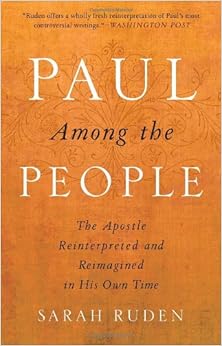I’m not inherently fascinated by libraries and bookstores, the way that some people are. Yet, as in the rest of the human environment (parks, city streets, trees, cafes, the workplace), I enjoy exploring and seeing what’s there.
Which usually means I walk home with a stack of books. Which usually means I read, then annotate, then want to share. But how?
I’d love to make you read every good book ever… yet I know that won’t happen. Below, I’ll copy Shane Parrish’s interesting weekly reading digest idea, and share some recent highlights:
 Provost (Larry Nielsen, 2013)
Provost (Larry Nielsen, 2013)
Have you ever wanted to be an academic administrator? No? Well, should you want to run a petty, ungrateful empire, this entertaining memoir shows exactly how to do it.
The Meaning of Marriage (Tim Keller, 2011)
As soon as I started dating, my pastor threw this one my way. Oh brother. Keller’s a urbane but conservative pastor, and his earlier Counterfeit Gods was a good nudge on caring well for our desires for money, sex, and power. I’d ignore the bit on old-school American gender roles, and instead note his comments on how affluent America’s cultural values conflict with committed relationships:
“both men and women today see marriage not as a way of creating character and community but as a way to reach personal life goals . . . our culture makes individual freedom, autonomy, and fulfillment the very highest values, and thoughtful people know deep down that any love relationship at all means the loss of all three” (28, 30).
 Paul Among the People (Sarah Ruden, 2010)
Paul Among the People (Sarah Ruden, 2010)
Hilarious, raunchy, and insightful, Ruden challenges our ideas about Christianity’s earliest popularizer, St. Paul. Modern folk tend to read Paul as somewhat backward (“sit down, slaves! / shut up, ladies! / don’t touch him! / obey your boss!”). But Ruden uses stories and poetry from ancient Greece and Rome to show how Paul engaged urban audiences with the hope of connection, a way to love others, and a way to engage in community. For instance, her defense of Paul’s military metaphors for respecting those in power:
‘To show sympathy and sincere deference to those with power over me, to trust them with my life as if on a battlefield and forgive the very costly mistakes they make, is harder. It’s like managing to love my damn parents’ (144).
 Overwhelmed (Brigid Schulte, 2014)
Overwhelmed (Brigid Schulte, 2014)
The problem with this book on mothering in America is… it’s too long. What mother has time to read and highlight 300 dense pages of journalism? Luckily, I’m single and here for you. Schulte and her husband juggle a household, children, and career—yet when the burden of family falls more and more to her, she begins to ask why, traveling America and Europe to learn how relational work still falls first on women. Shredding our idealism around the mythical “work-devoted ideal worker, the self-sacrificing ideal mother, and the distant provider father,” she goes after politicians who want workers on-call yet refuse to support childcare and still expect intensive parenting of every child.
So what’s the answer? Schulte highlights flexible workplaces that encourage both men and women to nurture children and aging parents; calls for affordable childcare; encourages women to take time for rest and play; and encourages more people to get involved in raising our nation’s children. Here, she quotes her interviews with social scientist Sarah Hrdy on how hunter-gatherer mamas leave children to go forage:
“The children were with their fathers, older siblings, grandparents, relatives, and other trusted, nurturing adults… It’s natural for mothers to work. It’s natural for mothers to take care of children. What’s unnatural is for mothers to be the sole caretaker of children. What’s unnatural is not have more support… moms who stay at home still need and deserve a lot of help” (191).
Hrdy also suggests than men are excellent nurturers, if encouraged and given time to invest in parenting:
“men, too, are wired to bond with and nurture babies… cortisol helps them bond with infants, prolactin helps them respond to crying babies, aggression drops briefly after their child is born, and fatherhood improves their planning and memory. Men are meant to directly care for children… Male parental care is so important that their bodies physically change to adapt to it. Men have tremendous capacity for nurture” (192).
Jeremiah, Ohio (Adam Sol, 2008)
Who reads novels-as-poetry? I have no idea, but parts of this are fantastic: a grumpy prophet shows up in blue-collar Ohio and drives around ranting and observing down-and-out America. If you’ve wondered how Biblical rants would look when written about Mansfield, Chillicothe, and Defiance… here we are:
Ohio Portrait in 5-Syllable Road Signs
Woodchipper for Rent
Danger! Rocks Below!
Registered Holsteins
Adopt a Highway
Pres. Harding’s Birthplace
Progressive Euchre
Troubled? Try Praying.
Soccer Conference Champs
Long Live Rock & Roll
Ceramic Lawn Pets
New Development
Re-elect John Glenn
The County’s Best Yarn
Slippery When Wet
Sarah We Miss You
Hardy Mums for Sale
Private Property
Forget the Damned Dog —
Beware of Owner!
Electric Co-Op
Next Stop Defiance
Wal-Mart Coming Soon
